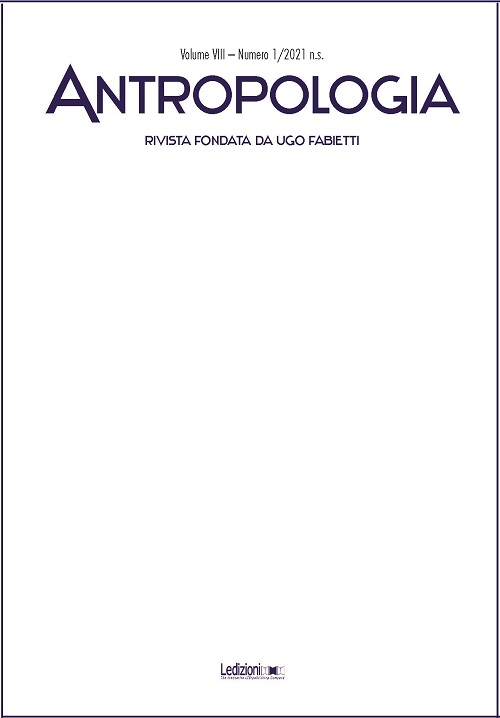Agency, subjectivity, violence: lives sideway, figures of redemption
DOI:
https://doi.org/10.14672/ada202117357-26Keywords:
agency, subjectivity, violence, relations of domination/healing processesAbstract
Anthropological debate and reflection have long insisted on the stakes of recognition and the relationship between social relations, contexts of domination and forms of subjectification. Recourse to the conceptual repertoire of critical theory proves fruitful, although certain terms such as agency are sometimes exhausted because of their misuse, the different connotation assumed in different disciplinary fields, and the frequent absence of in-depth ethnographic and historical analysis. This Introduction and the articles that follow in this thematic session are intended to be an opportunity to think about the concrete contexts within which relations of domination constitute and transform subjects, that is, the ways through which forms of subjectivity, desire, and suffering are generated or reproduced within those situations characterized by mechanisms of symbolic, economic, cultural, and political subjugation. The explicit assumption of this re-flexion is to conceive of the forms of psychism and the profiles of the individual as radically social, while measuring the critical contribution of the medical-anthropological and ethnopsychiatric sciences: particularly where they are challenged by the new places and contemporary figures of crisis (psychic, political, cultural).
Downloads
Published
Issue
Section
License
Copyright (c) 2021 Antropologia

This work is licensed under a Creative Commons Attribution 4.0 International License.
Authors maintain the copyright of their original work and grant the Journal the right to first publication, licensed after 36 months under a Creative Commons Licence – Attribution, which allows others to share the work by indicating the authorship and first publication in this journal.
Authors may agree to other non-exclusive licence agreements for the distribution of versions of their published work (for example in institutional archives or monographs) under the condition that they indicate that their work was first published in this journal.


